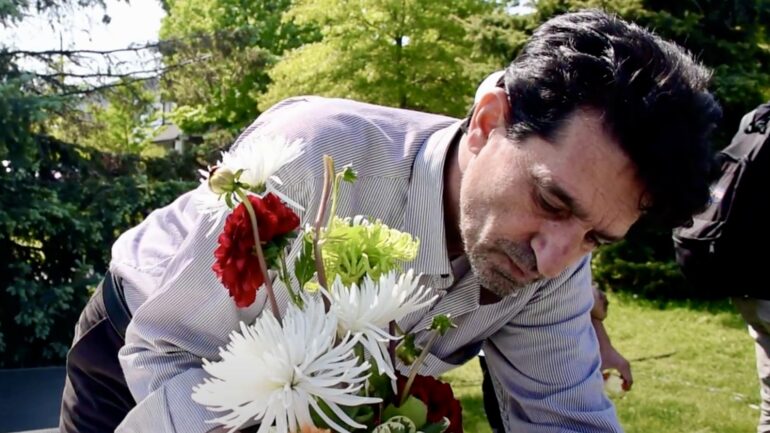Two Syrian refugees held a floristry workshop to talk about the labour of newcomers and refugees as part of the closing ceremonies at the Mayworks Festival of Working People and the Arts on Saturday.
Abd Al-Mounim and his daughter, Hanen Nanaa, ran the workshop in Dentonia Park, near Victoria Park Ave and Danforth Ave.
Nanaa said there is a “shared responsibility” for everyone to support the integration journey of newcomers and refugees to Canada.
“We were asked to share our personal experiences because my dad used to be a florist in Syria and when he came here, he had struggled with language barriers, Nanaa said. “It was inaccessible for him to enter the workforce.”
Al-Mounim and Nanaa fled war-torn Aleppo in Syria near the start of the war in 2011.
“It was a brutal conflict,” she said. “So, for us, it was safety, of course. And this flooding of violence was not the solution for us. We needed to escape.”
It was not only the violence that drove her family from their home, Nanaa said.
“My mom also was diagnosed with cancer at that time, so we needed to escape for healthcare access,” she said. “We left to Turkey, so we crossed borders and we lived there as refugees for five years.”
From Turkey they came to Canada in 2016, she said.
Back in Syria, Nanaa’s father created vast floral arrangements for prestigious places and guests.
Al-Mounim was once commissioned to create a flower arrangement for the Citadel of Aleppo and “had to decorate the entire entrance and the castle for the King of Spain who visited at that,” he said in Arabic through his daughter translating.

Abd Al-Mounim arranges a flower bouquet during a workshop that concludes the Mayworks Festival of Working People and the Arts. Photo credit: James Westman
“But it was, of course, destroyed by the [war], not fully destroyed but some of the castle parks, but it’s still a huge part of Aleppo. There are a lot of activities in parks and cafes around the castle,” Al-Mounim said.
Nanaa said the floristry workshop was a way to share a “bit about the market in Syria” and to compare how bouquets are made in Syria to how they are made here.
She also said giving refugees access to the decision-making table is important, especially when creating policies and developing their own programs and workshops, like the floristry one.
The voice of refugees is crucial, “so we hear their needs, and we can build our programs and policies to support their needs and fill the gap,” Nanaa said.
She said Canadians should also celebrate refugees’ successes and stories.
“As refugees, we go through a lot, and I feel it’s important to talk about our stories of vulnerability and how that made us strong and resilient in Canada,” she said. “And I think when we celebrate those stories, we can create more welcoming and integrated communities.”
For Al-Mounim, his message to Canadians is exceedingly simple:
He asked that Canadians be “patient with us,” and particularly for those with language barriers.
“I wish that they can create more welcoming environments for refugees and newcomers. They can accept us the way that we are,” he said.

